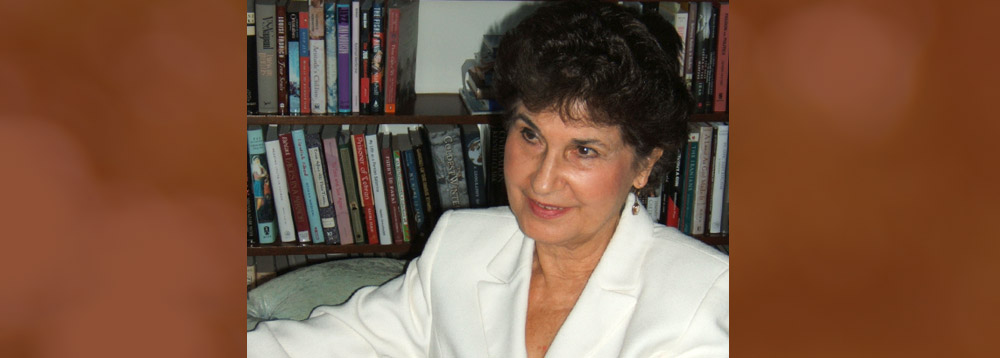
As someone who has given to the Maxine Platzer Lynn Women’s Center for the most consecutive amount of years, Nesta Ramazani is one of the Center’s most esteemed donors. In its 25th anniversary year, the Women’s Center would like to recognize Ramazani’s continuous support by highlighting her here on our website.
Ramazani first found out about the Women’s Center at a social event in which she met Director Sharon Davie.
The person who introduced them mentioned that the Center worked to “advance women’s interests and rights,” which inspired her to find out more. All the programs interested her, but she had particular passion for the Women, Girls and Global Justice (WGGJ) program.
“[…] I’m so aware of how backwards the women’s situation is in many cultures around the world,” Ramazani said. “[That is why WGGJ] is really of great interest to me.”
She made her first gift to the Center in 1990. After more than 20 years of support, Ramazani believes others should consider giving to the Center “because all the programs support women and girls, here and abroad, and they analyze poverty and talk about human rights and study the relationship between poverty and ignorance and lack of human rights, as well as health care and education which is so important, especially in the underdeveloped world.”
Ramazani herself has been an advocate of women’s rights through her writing and speaking engagements. She has given talks through U.Va. extension courses and the Osher Institute for Lifelong Learning on Women and Islam, and she published her memoir, The Dance of the Rose and the Nightingale, in 2002, which addresses gender, culture and politics in the Middle East.
Born in 1932 in England, she later grew up in Iran and moved to the U.S. with her husband, Ruhi, in 1952, so that they could both continue their education. After one semester at the University of Georgia, they moved to Charlottesville in 1953, where her husband earned the S.J.D degree at the Law School, then taught the first course on the Middle East at U.Va. He “helped build the University into a nationally ranked institution,” according to Larry Sabato, professor and director of the Center for Politics, in a 2007 UVA Today article.
Ramazani recalled the two most significant changes within the University, from the time she arrived then until now, are the population size and diversity and greater internationalism within the curriculum.
“When we came here, the entire University student body was 3,000,” she said. “Now, we graduate more than 4,000 every year. What is more, the student body was all male; women were not admitted until 1970, so that tells you a little bit about how the University has changed and expanded and developed and increased its faculty and its student body and its courses. Furthermore, when we first came here, there were no courses at all on the Middle East. It took my husband years and years of pushing to get any interest in teaching about the Middle East and now, of course, it’s a primary subject."
Her husband is now retired and they still reside in Charlottesville. They have four children and six grandchildren. Their family holds eight degrees from U.Va., one of which is an M.A. in English that Ramazani earned in 1989.
Ramazani also enjoys cooking and published a cookbook, Persian Cooking: A Table of Exotic Delights, in 2000. Reviewers say her recipes are approachable and authentic.
“I’ve enjoyed many of Nesta’s meals,” Sabato said in UVA Today. “And believe me, if you’re invited to dinner at her house, you go. It’s a culinary extravaganza.”
Nesta Ramazani values the work of the Women’s Center, and the Center is so grateful for her loyalty and generosity over the years.
“I just think it’s a great organization and [the Women’s Center] should keep up their wonderful work. It’s a very, very valuable organization.”
Story by Agnes Filipowski
Photo courtesy of Nesta Ramazani

